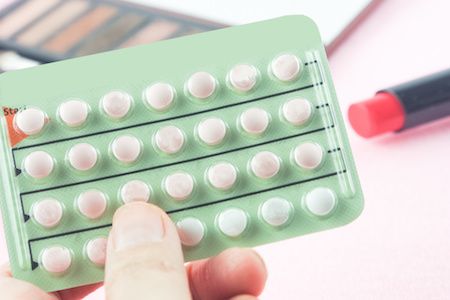Low Libido? Don't Blame Contraceptive Pills
Researchers sought to debunk the myth of a causal relationship between the pill and decreased libido in women.

The pill — one of the most common means of contraception women use – has long been considered a culprit in decreased sexual desire. Despite the lingering belief these pills affected their sex drives, a total of 62% of women of reproductive age (15-44) had reported using contraceptive pills in a paper by the Centers for Disease Control and Prevention (CDC).
Researchers sought to debunk the myth of a causal relationship between the pill and decreased libido in women.
A research team led by Kristen P. Mark, PhD, MPH, University of Kentucky, curated a comprehensive review of existing research. They said that the impact of hormonal contraceptives on women’s sexual desire was actually conflicting and “not well studied”. Instead, the new research implied contextual factors like the length of relationships could have a more significant impact on female sex drive rather than the kind of contraceptive used.
The new study published in The Journal of Sexual Medicine pointed out previous research didn’t differentiate between the kind of contraceptive used (hormonal or non-hormonal) and the context of relationships and sexual behavior. As such, Mark’s team conducted two separate studies among more than 900 people to investigate the effect of different contraceptive types — oral hormonal, other hormonal, and non-hormonal – on female sexual desire.
They took a step further and also assessed sexual desire in the men partnered with women using contraceptives.
The first study examined the effect of contraceptive use on heterosexual partners in relationships of different lengths and the second study focused on the same effect on only long-term relationships. The team used the Sexual Desire Inventory (SDI) to investigate (in cognitive terms) two kids of sexual desire: solitary (solo libido) and dyadic (libido with a partner).
According to the study results, the kind contraceptive used significantly impacted solitary and dyadic sexual desire. Specifically, results showed, “Women on non-hormonal contraceptives reported higher solitary desire than women on other hormonal contraceptives. Women on oral hormonal contraceptives reported significantly higher dyadic sexual desire than women on non-hormonal contraceptives.” Interestingly, the male partners of women using contraceptives reported no change in sexual desire.
The team didn’t find any association between contraceptive type and solitary or dyadic sexual desire in women and men and also pointed out that sexual desire was “strongly predicted” by the relationship length rather than the type of contraceptive used. According to Mark, women are often are looking for an explanation for changes in their sexual desire, which isn’t fixed throughout their lives.
“In my undergrad classes my students often say they hear the pill makes you not want sex, ‘so what’s the point?’ Our findings are clear: the pill does not kill desire. This research helps to bust those myths and hopefully eventually gets rid of this common cultural script in our society,” Mark said.
The CDC published the National Health Statistics Report, “Current Contraceptive Use in the United States, 2006-2010, and Changes in Patterns of Use Since 1995”
The article, “Impact of Contraceptive Type on Sexual Desire of Women and of Men Partnered to Contraceptive Users,” was published in The Journal of Sexual Medicine.
Related Coverage:
Weight Influences a Women’s Birth Control Preference